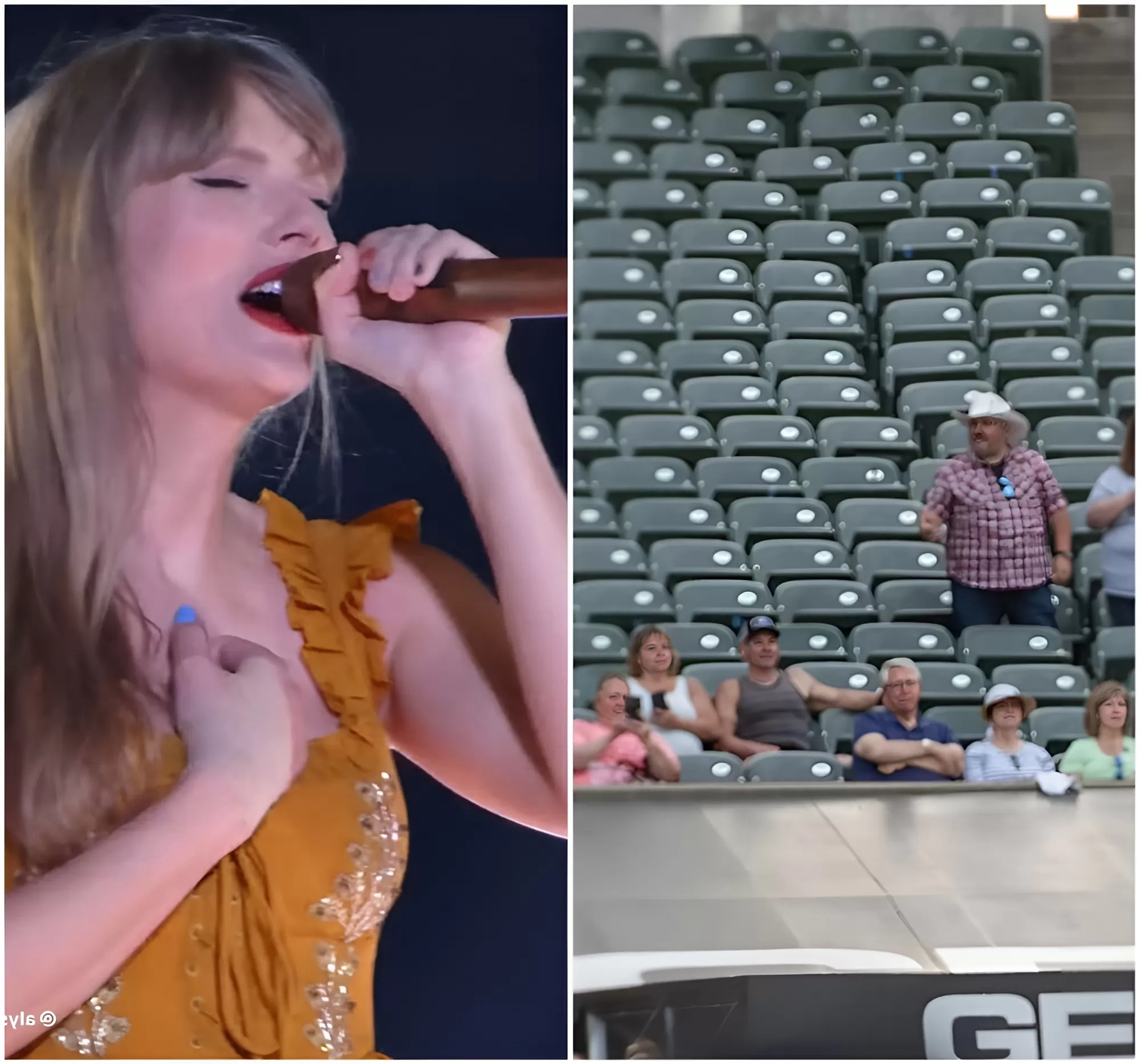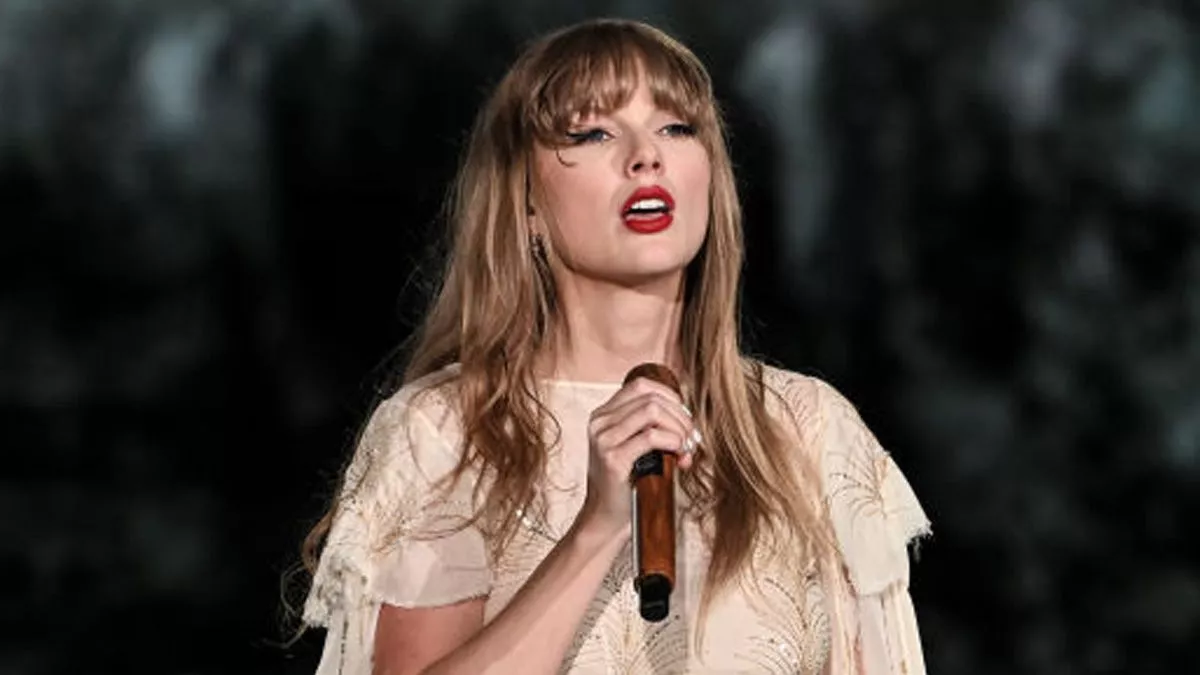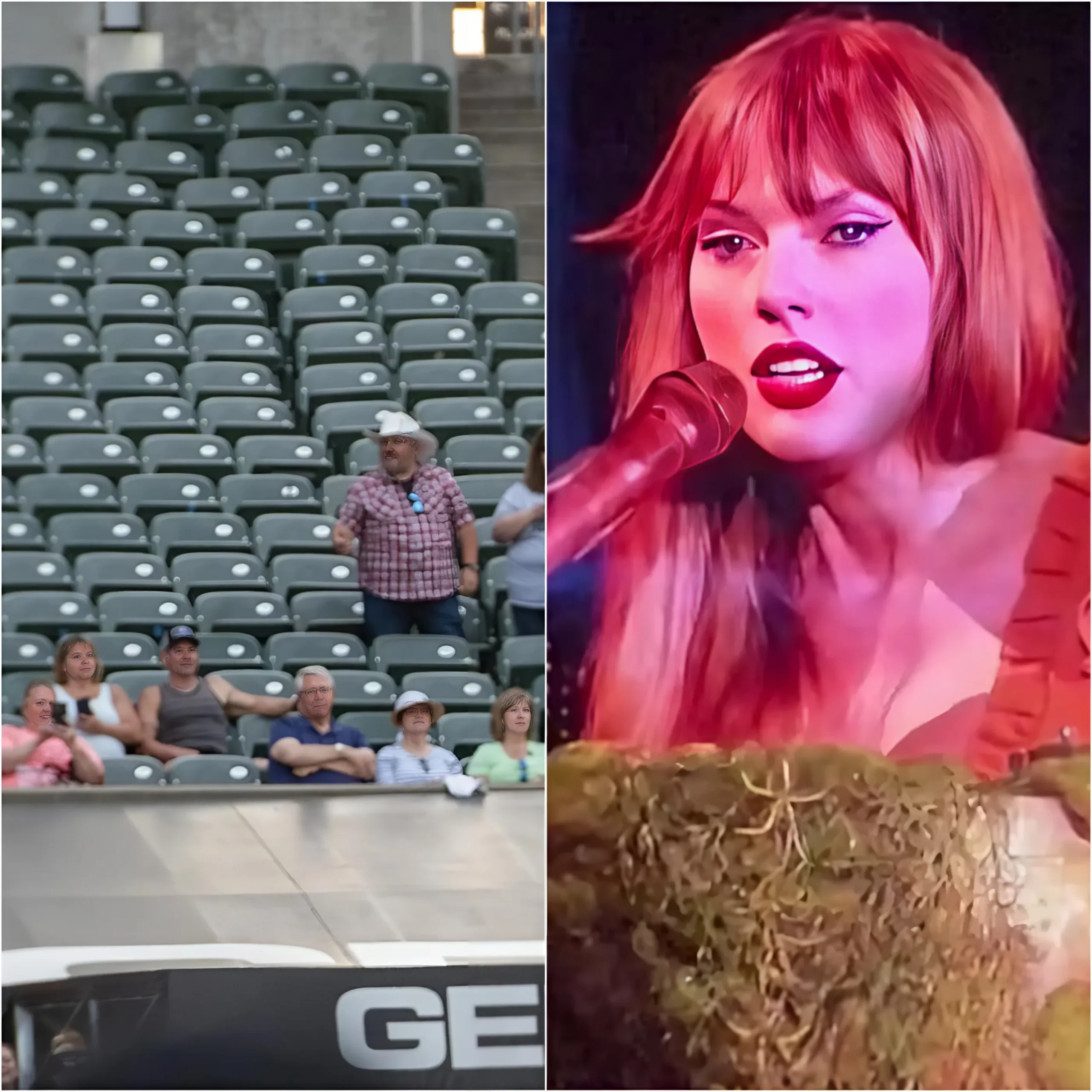CELEBRITY
Just In: Taylor Swift’s Concert Attendance Drops After Harris Endorsement: ‘No Fans, Just Empty Seats and Echoes’

In a surprising turn of events, Taylor Swift’s recent endorsement of Vice President Kamala Harris has led to a significant backlash, resulting in empty concert venues that were once filled to capacity. The pop star, known for her record-breaking Eras Tour, now finds herself confronting a wave of discontent among fans who feel alienated by her political stance.
Just weeks ago, Swift was basking in the success of her tour, with tickets selling out in minutes. But everything changed when she publicly supported Harris in a social media post, declaring, “Kamala Harris is the leader we need. She stands for equality, justice, and progress.” This bold political statement was met with an immediate uproar from a segment of her fanbase, many of whom felt blindsided.
The fallout was swift and harsh. Social media erupted with hashtags like #TaylorSwiftIsOverParty and #BoycottTaylor, with fans expressing their disappointment.
Some longtime supporters voiced feelings of betrayal, commenting that they followed Swift for her music, not her political opinions.
When the Eras Tour resumed, the stark reality of the situation became evident. Concerts that used to be vibrant celebrations were now eerily quiet, with entire sections of seats left unfilled. One attendee described the atmosphere as “like the world’s biggest Taylor Swift karaoke party, but no one showed up.”
Another noted the haunting echo of her voice in nearly empty arenas, further emphasizing the impact of her political endorsement.
Despite efforts by Swift’s team to downplay the situation, attributing low attendance to “scheduling conflicts” and “local weather,” fans remained unconvinced. The sentiment is clear: her venture into politics has driven a wedge between her and a portion of her audience.
However, not all feedback has been negative. Swift’s politically aligned supporters have rallied behind her, praising her for using her platform to address important issues. Yet this division has led to conflict within her fanbase, with many expressing concern that politics, rather than music, is now at the forefront of Swift’s identity.
The media has also weighed in, debating whether celebrities should engage in political discourse. Critics argue that Swift’s endorsement has compromised her ability to unite fans through her music. One commentator noted, “Taylor Swift is a perfect example of why musicians should stick to singing.”
As speculation grows about the future of her tour and the potential cancellation of remaining dates, insiders reveal that Swift is aware of the backlash and is “devastated” by the response. “She thought her fans would rally behind her,” said a source close to the singer. “This has been a real wake-up call.”
Moving forward, Swift is reportedly focusing on finishing her tour, while also working on new material. The direction of her upcoming songs remains uncertain, with fans questioning whether political themes will continue to play a role in her work.
Ultimately, Swift’s resilience is well-documented; she has navigated public feuds and personal challenges throughout her career. Yet, this time, the stakes feel higher.
Will she be able to bridge the gap with her fans and reclaim her status as a beloved pop icon, or has her foray into politics altered the course of her career permanently? Only time will tell if Swift can transform this setback into a new chapter of success or if it marks a longer-term decline in her fanbase. For now, she faces one of the toughest performances of her career—under the shadow of empty seats.
























